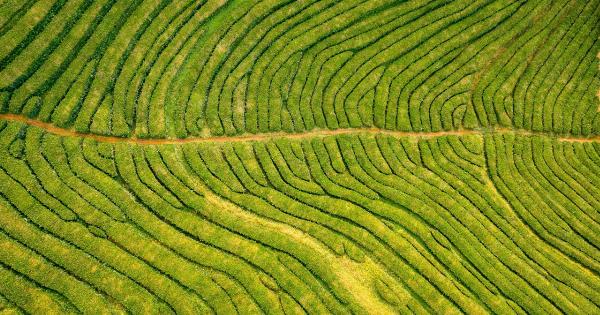Green tea is often hailed for its numerous health benefits, such as its rich antioxidant content and potential to promote weight loss.
However, while green tea can be a healthy addition to most people’s diets, there are certain individuals who may want to exercise caution or even avoid it altogether. In this article, we will explore who should consider skipping green tea and why.
1. Pregnant Women
Although green tea is generally safe for consumption, it contains caffeine, albeit in smaller amounts compared to coffee or black tea.
Pregnant women are advised to limit their caffeine intake to less than 200 milligrams per day to avoid any potential risks to their unborn babies. Since green tea contains caffeine, it is recommended that pregnant women consult their healthcare provider before including it in their diet.
2. Breastfeeding Women
Similar to pregnant women, breastfeeding mothers should also be cautious about their caffeine intake.
While a moderate amount of caffeine is unlikely to cause harm to the nursing baby, excessive intake may lead to irritability, poor sleeping patterns, and upset stomach. Therefore, it is advisable for breastfeeding women to limit their consumption of green tea or opt for decaffeinated varieties instead.
3. Individuals with Iron Deficiency
Green tea is known to inhibit the absorption of iron from plant-based sources. Consuming green tea alongside a meal or immediately after can reduce the absorption of non-heme iron, which is crucial for individuals with iron deficiency or anemia.
To maximize iron absorption, it is recommended to consume green tea separately from iron-rich foods or drinks.
4. People with Digestive Disorders
Green tea contains tannins, which can have an astringent effect on the digestive system, potentially causing stomach irritation or discomfort.
Those suffering from conditions such as irritable bowel syndrome (IBS), acid reflux, or ulcers might experience exacerbated symptoms after consuming green tea. Therefore, it is advisable for individuals with digestive disorders to limit or avoid green tea consumption.
5. Individuals with Liver or Kidney Problems
While green tea is generally considered safe, excessive consumption or high doses of green tea extract may put additional stress on the liver or kidneys due to its caffeine and antioxidant content.
People with liver or kidney diseases should exercise caution and consult their healthcare provider before adding green tea to their routine.
6. Those with Anxiety or Sleep Disorders
Green tea naturally contains caffeine, which can potentially worsen symptoms in individuals with anxiety disorders. Caffeine’s stimulatory effect can increase heart rate, induce jitters, and lead to restlessness, potentially aggravating anxiety.
Additionally, green tea consumption close to bedtime may interfere with sleep due to its caffeine content. People with anxiety or sleep disorders should consider reducing or avoiding green tea intake.
7. Individuals with Blood Pressure Issues
The caffeine present in green tea can cause a temporary increase in blood pressure, especially in individuals who are not accustomed to consuming caffeinated beverages.
While this effect is usually mild, individuals with high blood pressure or cardiovascular conditions should monitor their caffeine intake and consider limiting or avoiding green tea consumption if advised by their healthcare provider.
8. People Taking Certain Medications
Green tea can interact with certain medications, potentially affecting their efficacy or increasing the risk of side effects.
For example, green tea may interfere with blood-thinning medications like warfarin or increase the stimulant effects of medications used to treat ADHD. If you are taking any prescription or over-the-counter medications, it is advised to consult a healthcare professional before incorporating green tea into your routine.
9. Individuals with Caffeine Sensitivity
While green tea generally contains less caffeine than coffee or black tea, it can still cause adverse effects in individuals who are highly sensitive to caffeine.
These effects may include jitters, restlessness, increased heart rate, and trouble sleeping. If you experience such symptoms, it may be worth considering reducing or eliminating green tea from your diet.
10. Children
Due to their smaller body size and potentially lower tolerance to caffeine, it is recommended that children avoid or limit their consumption of green tea.
Additionally, green tea contains certain compounds, such as tannins, that could interfere with nutrient absorption in growing children. It is best for children to consume water, milk, or other age-appropriate beverages instead.
While green tea offers a range of potential health benefits, certain individuals should exercise caution or avoid it altogether.
Pregnant and breastfeeding women, individuals with iron deficiency, digestive disorders, liver or kidney problems, anxiety or sleep disorders, blood pressure issues, those taking certain medications, people with caffeine sensitivity, and children should consider the factors discussed above before incorporating green tea into their routine. It is always advisable to consult with a healthcare provider for personalized advice based on individual circumstances.































